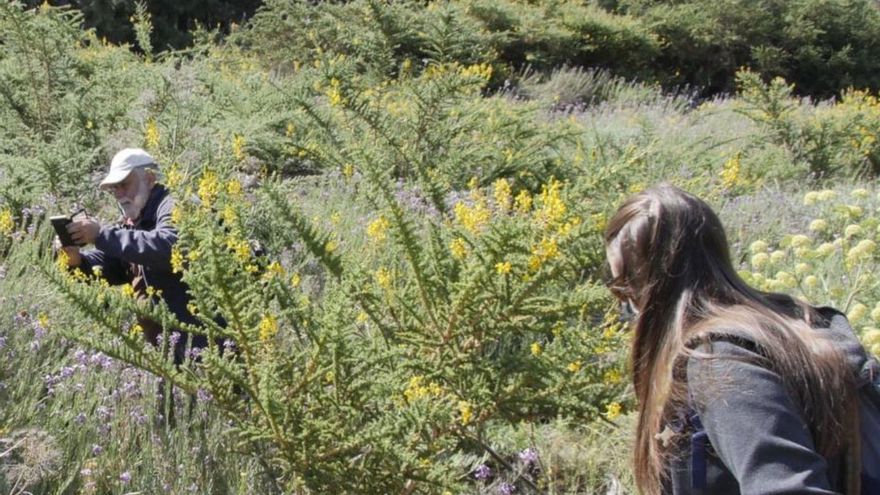Cabildo de Tenerife, through the Area of Sustainable Development and the Fight against Climate Change, is launching a citizen science program to bring knowledge about bee pollination closer together through a participatory approach. It is about raising awareness about the importance of these small animals in the functioning of ecosystems and in food production. Within the framework of this programme, on the occasion of World Bee Day and in collaboration with ULL, the first practical workshop on monitoring wild insects was held yesterday in Montana Joco, in the municipality of La Orotava.
Montaña Joco is a point of great diversity of pollinators within the jungle crown of the island, approximately 2,000 meters above sea level. The 30 participants learned to identify the bee species that live in Tenerife, explored multiple aspects of the biology and ecology of these species, and were guided in the methodology of observing and studying bees and pollinating insects in general.
New workshops will be developed in the coming months. Among other things, learn to identify day butterflies, wild bees and servids, as well as create butterfly gardens and shelter plants for pollinators, landscape photography, scientific drawing or learn how to collect data systematically.
This new project is part of Tenerife’s Biodiversity Conservation Strategy 2020-2030. It aims to raise public awareness about the importance of pollinators and to raise awareness about the threats they face.
World Bee Day
In October 2017, the United Nations General Assembly declared May 20 as World Bee Day, coinciding with the birth anniversary of the Slovenian scientist Anton Janša, the pioneer of modern beekeeping in the 18th century.
Most populations know only the honey bee (Apis mellifera), which is domesticated by humans, in the world, but there are more than 20,000 different species of wild bee. About 130 have been recorded in the Canary Islands and more than a third of them are endemic.
It should be noted that 90% of wild and agricultural species in the countryside depend on animal pollination, which means more than 2,400 million euros for the Spanish economy.





:quality(75)/cloudfront-us-east-1.images.arcpublishing.com/elcomercio/DXYVIQR6EBGULOFBFA2HOAQVIM.jpg)